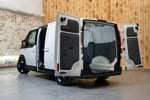Customs had tried to recover VAT from BRS Car Lease, an innocent and unwitting player in an ingenious scheme which exploited the August 1995 changes to the VAT treatment of leased company cars. This scheme required a fleet to set up an in-house leasing company prior to August 1, 1995; the fleet to pre-pay all the lease rentals for its company cars to its in-house operation (it then recovered 100% of the VAT on the payments as it was entitled to do prior to August 1995); and the in-house leasing company to source company cars from an external contract hire firm post-August 1, 1995, the date at which contract hire companies gained the right to recover VAT on cars for onward lease.
In this way, the end-user fleet reaped the double benefits of paying VAT-free rentals for VAT-free company cars. The in-house leasing company, meanwhile, could recover all the VAT on the rentals it paid to the external contract hire company because it was leasing the cars in the course of its business.
Customs tried unsuccessfully to recover this lost VAT revenue from the external leasing company, BRS, even though it was completely unaware of its customers' actions. The Court of Appeal's verdict means that BRS - then a subsidiary of NFC but since acquired by GE Capital Fleet Services - and other car leasing companies no longer have VAT liabilities for the consequences of similar schemes operated by other clients. Customs was denied leave to appeal to the House of Lords, but does have 30 days to lodge an appeal against this denial.
In the meantime it has introduced new rules which will block 50% of the VAT on the rentals paid by the intermediary leasing company to the external contract hire firm. Dawn Primarolo, financial secretary to the Treasury, said: 'We are acting quickly to tackle this blatant avoidance scheme marketed by some of the leading accountants. Business needs to understand that we will not hesitate to bring forward counter measures as and when required.'
















Login to comment
Comments
No comments have been made yet.